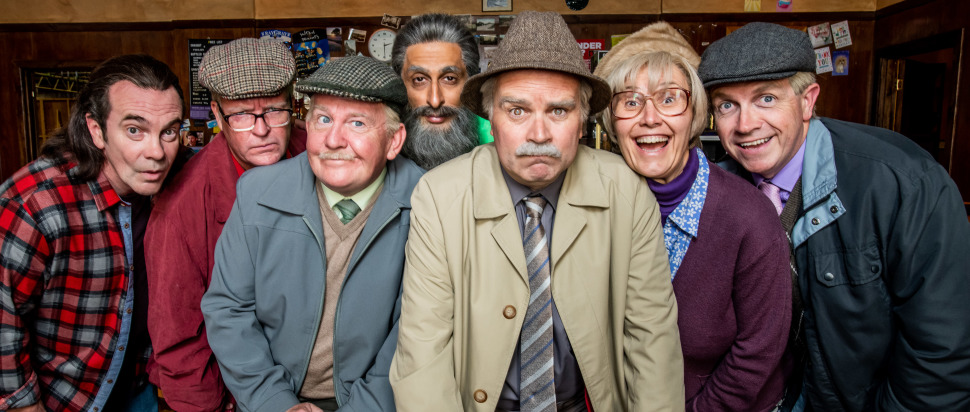Still Game, BBC Scotland, and the future of TV comedy
Launching a new TV channel in 2019 sounds like an idea that'd need a battalion of loyal support. Lucky for BBC Scotland, its rabbit’s foot is the premier of Still Game's final series. But will this impact future comedy content for the channel?
Kicking off a brand new BBC Scotland channel with the premiere of Still Game’s final series is a sensible, if far from ground-breaking move from Auntie Beeb. Although Scotland’s best-loved sitcom will inevitably draw big viewing figures (3.75 million viewers watched the first episode of series eight last year), will the public really stick with the channel if it’s only broadcasting 18 hours of new content a week, with comedy being a tiny fraction of that?
Of course, the nature of comedy broadcasting is a world away from when Jack and Victor first graced our screens as part of Chewin’ the Fat in 1999. There’s no need to ring your sister to tell her to tape your programme off the telly anymore, or praying that the next series of Friends won’t clash with EastEnders. The fact we can now trawl through comedy old and new, catching up on that show your mates won’t stop going on about three months later, and easily sharing those moments that made you cry-laugh, has revolutionised the viewing experience.
Then there's the frequency and speed with which content can now be commissioned and produced: Turtle Canyon Comedy release new content pretty much every week, Next Up film and upload new live shows every month, and Netflix released 47 international stand-up specials all at once on New Year’s Day. No wonder ‘normal’ TV struggles to compete with this volume of output.
And is a terrestrial TV channel like this even the best way to champion the comedy Scotland has to offer? BBC’s The Social web channel is surely doing a better job by showcasing folk like former Scottish Comedian of the Year winner Rosco Mclelland and hot property Christopher McArthur-Boyd, as well as familiar faces on the Scottish circuit like Rachel Jackson and Chris Thorburn. Even the brilliant Scot Squad, which features bit-parts from a roster of Scottish comedians, is due to air a fifth series soon whilst still being treated like the new kid on the block. The only newly commissioned comedy for the BBC Scotland channel is The Comedy Underground, which showcases new Scottish stand-ups, and The State of It, a topical show akin to Charlie Brooker's Newswipe and reliant on BBC Scotland veterans Robert Florence (Burnistoun) and Joe Hullait (Scot Squad writer).
As the home of one of the best-regarded comedy circuits and the biggest arts festival in the world, why isn’t the channel doing more to support its wealth of home-grown talent? After all, the biggest sitcoms of last year were platforms for bright, innovative youngsters telling it as it is, with a regional lilt to boot. Derry Girls was the most-watched series in Northern Ireland since 2002. Cork-based The Young Offenders was lauded for its winning combination of gags and heart after its UK release. And This Country won an RTA and multiple BAFTAs in 2018 for both its West Country writers and stars, Daisy-May and Charlie Cooper, with its second series likely to do the same. But where’s the youthful, vibrant Scottish sitcom that can’t move for plaudits?
That said, this new channel is desperately needed if Scottish talent is to remain unrecognised across the UK. Janey Godley, one of the hardest-working Scottish comics who’s been on the scene since 1994, has only just appeared on Have I Got News For You. Likewise, Richard Gadd, the first Scottish winner of the Big Fringe Comedy Award (yes, we’ll call it the Perrier ‘til we die), is still an unknown name outside the Fringe bubble. On top of this, there’s only been five separate Scottish acts on Live at the Apollo in the last ten years (four if you exclude Edinburgh-based but Canadian-born Tom Stade). And when the most recent of these acts to grace the Apollo’s stage are Larry Dean and Fern Brady, both comedians since 2010, perhaps the upcoming Glasgow-based Channel 4 Creative Hub will give new and existing comics a better leg up in the industry instead.
